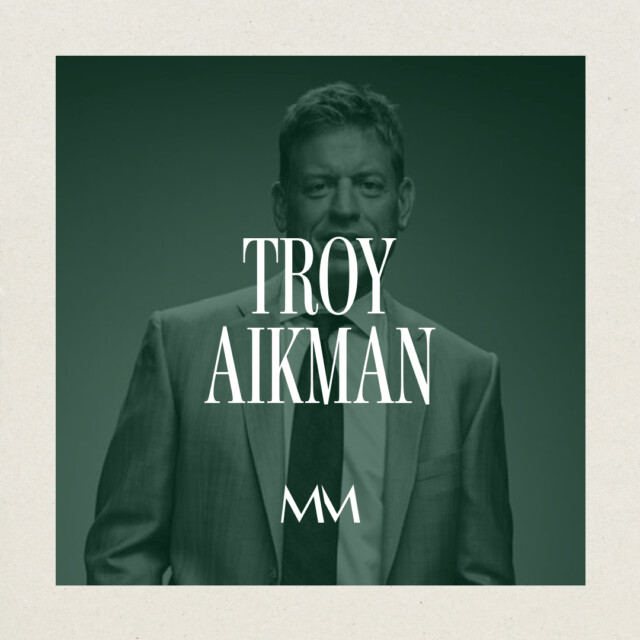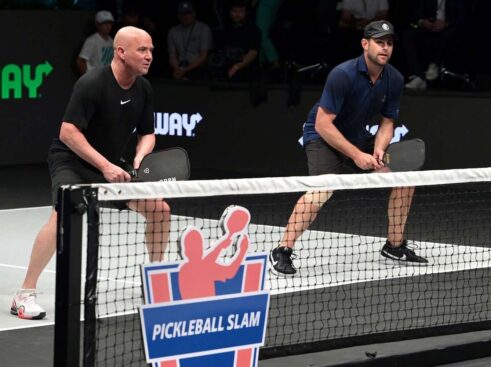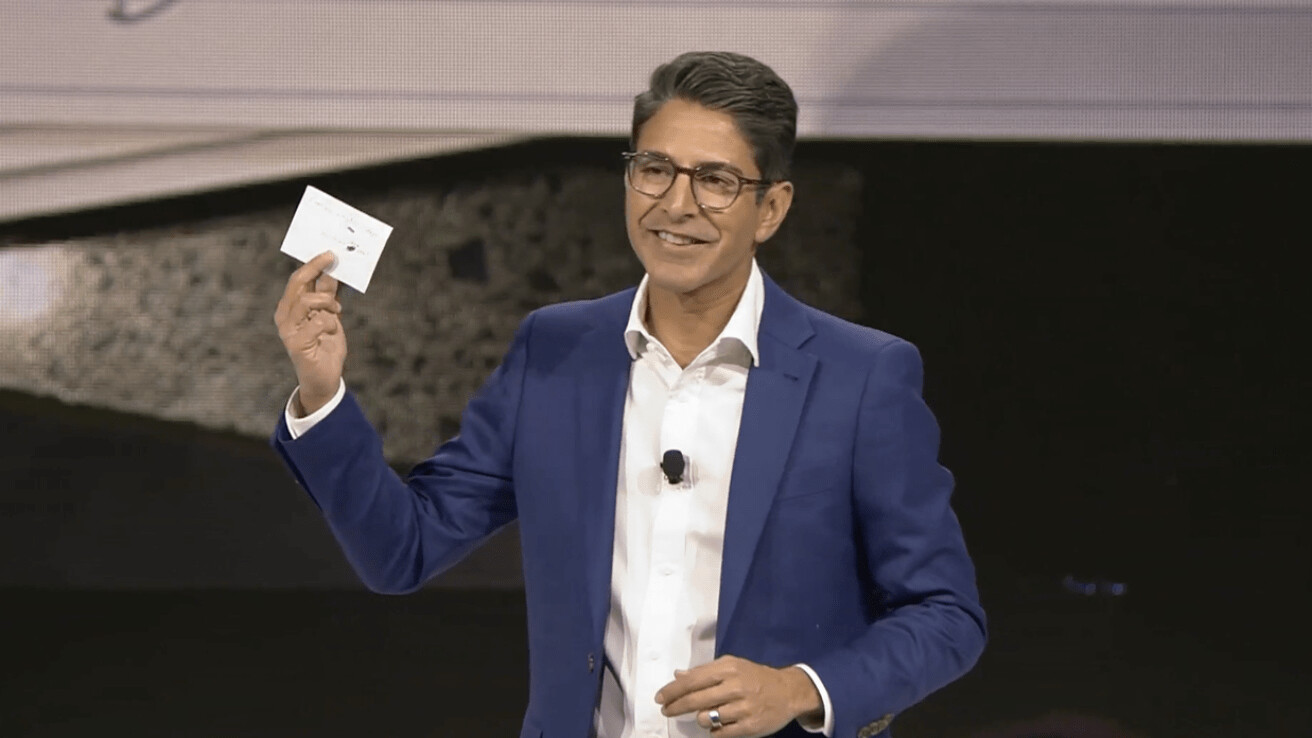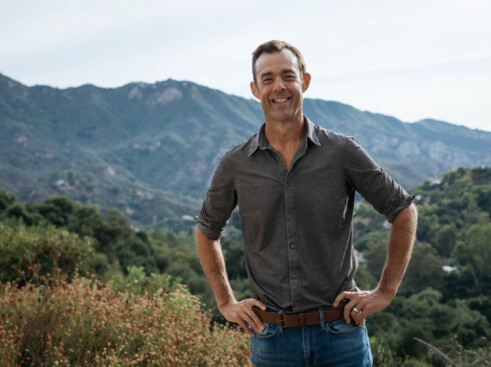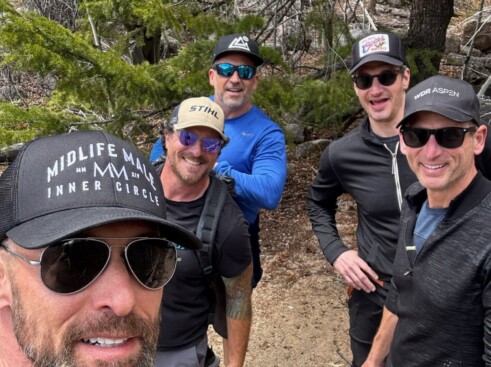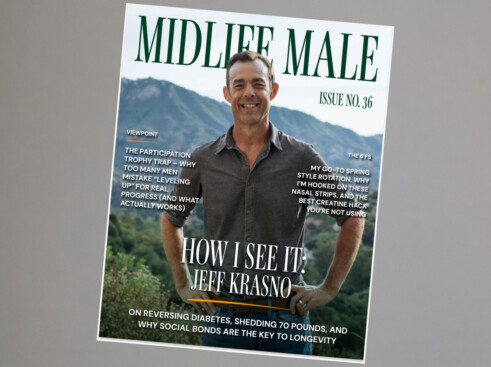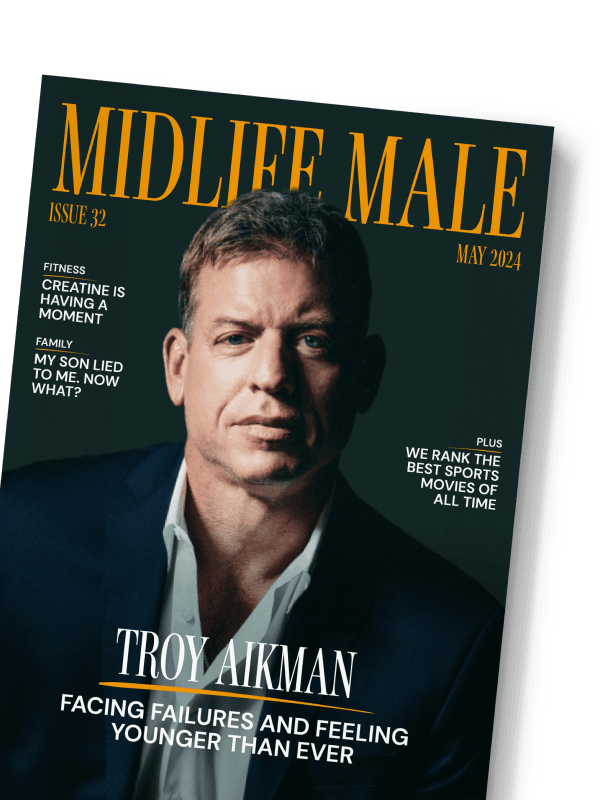Once dubbed the “face of failure” by The New York Times, Suneel Gupta turned setbacks into stepping stones for success. He became the founding CEO of RISE, a wellness company named Apple’s App of the Year.
Now a bestselling author, renowned speaker, Harvard Medical School visiting scholar, and host of a global documentary series, Suneel studies top leaders worldwide to uncover actionable habits that boost performance and enhance well-being. His journey illustrates the power of resilience and the transformative potential of learning from failure.
Note from Greg:
“This week, we have Suneel Gupta in our How I See It interview. Suneel is the author of Backable, a book I read a couple of years ago that really changed my perspective on how I saw myself. It pushed me to ask some hard questions: Am I backable as a husband, father, provider, and man? Would I invest in me? And in the areas where I was coming up short, what do I need to do, change, and transform in order to become backable? Suneel’s insights not only shaped the way I approach my work but also how I approach my entire life and the relationships that matter most to me.“
How I See it with Suneel Gupta
Greg Scheinman: We met about three or four years ago in Detroit at Three Ring Circus, which is now Impact 11. It was a speaker’s boot camp, right?
Suneel Gupta: Yeah, that’s right. I remember you telling me about your premise and what you were working on, and I thought to myself, “Wow, I need that. I’m a midlife male—let me tune into this podcast immediately.” And Greg, I’ve got to say, your stuff is great. It’s helping a lot of people, including me.
Greg Scheinman: Well, thank you for saying that. The feeling is mutual. I remember how many incredible people we had in that room, all at the top of their game in their respective industries and lives. Yet, we were all very new to the speaking industry, which is why we were there—to find our voice and learn how to reach more people. At the time, you were talking about being backable, and I’d love to dive into that concept. For me, a lot of my personal growth came from not feeling “backable” and wondering how to transition into that state. Can you talk about what it means to be a “backable” man?
Suneel Gupta: Sure. I felt the same way—like I wasn’t backable. I realized this after pitching my startup idea to over a dozen investors and getting rejected each time. I began wondering, “Is it the idea or the way I’m explaining it?” What are we really betting on when we bet on someone? This question doesn’t just apply to venture capital; it applies to life—our careers, communities, friendships, and family relationships. We constantly take chances on people, and I wanted to understand the habits of those who seem to succeed naturally. Are they born with it, or is it learned?
About ten years ago, The New York Times did an article on failure, and I was the face of it. I had started two companies that failed, and I was also part of Groupon, which had a meteoric rise and fall. So, I became the poster child for failure. I even used that article, with a mentor’s advice, to reach out to successful people for guidance. I sent the article to filmmakers, celebrity chefs, and sports coaches with a message saying, “I don’t know what I’m doing—can you help?” To my surprise, the response was overwhelmingly positive. People were willing to connect with me, not because I was successful, but because I was vulnerable. That vulnerability paved the way for Backable and later, Everyday Dharma.
Greg Scheinman: That’s fascinating, and it really struck a chord with me. So many of us go through life hitting goals but feeling like something is missing—whether it’s in family, fitness, finances, or just everyday fulfillment. It’s that nagging sense of mediocrity, even when things look great from the outside. Can you talk about how that sense of mediocrity ties into the concept of purpose?
Suneel Gupta: Absolutely. There’s a concept called “the arrival fallacy,” coined by Dr. Tal Ben-Shahar. It’s the belief that once we achieve success—whether it’s wealth, status, or a specific goal—we’ll finally be fulfilled. But what happens is the goalpost keeps moving. We think it’ll be the next deal, the next car, the next house, but once we get it, the happiness is fleeting, and we’re left wondering, “What’s next?”
For me, after I finally started a successful company and sold it, I thought, “This is it!” But that feeling didn’t last. And that’s where the concept of Dharma comes in—it’s about connecting who you are with what you do. Dharma isn’t about quitting your job and chasing some grand vision. It’s about finding the small sparks in your daily life that bring you joy, doubling down on those, and fanning them into something bigger.
Greg Scheinman: Does that mean you always have to align your purpose with your profession? What if you can’t quit your job or radically change your life?
Suneel Gupta: No, you don’t have to quit your job to find purpose. That’s a misconception. Purpose isn’t about flipping off your boss and moving to a mountaintop. It’s about finding those small embers of joy in your current life and nurturing them. You might not be able to change everything overnight, but you can lean into the moments that give you energy. For example, there’s a nurse I know who found joy in filling out patient paperwork because she personalized it, writing not just clinical details but human details about the patients. That simple act sparked joy for her, and it impacted everyone who read her notes. She didn’t quit her job—she just found purpose in the details.
Greg Scheinman: I think it’s so spot on. You can successfully fail. I had this book title in mind for years: Michael Eisner Bought My Business, Then I Successfully Failed. It’s what you were describing with Groupon. I found myself in a business with a high-profile partner, and suddenly we were all over the media. But just as quickly as we succeeded, we failed. It was a video company, and then pediatricians started talking about not putting kids in front of screens, the leagues wouldn’t issue licenses, and our customers—like Circuit City and Toys “R” Us—were going out of business. So, I had this huge rise and then a crash. The irony is, I failed, but like you said, you can successfully fail because you can turn it into an opportunity if you’re willing to embrace it.
Suneel Gupta: Yeah, exactly. Rumi, the ancient Sufi poet, had a big influence on my writing, especially this concept. He said, “The world is going to break your heart, but if you allow it, your heart will crack open, and you’ll find the love and passion you were searching for.” I think that’s the key. A lot of times, especially for men, we fight that cracking open. We call it resilience, thinking, “I’ll get back on my feet right away and keep moving.” But sometimes, we need to appreciate how those painful moments can shape us. That’s where our purpose and growth come from.
There’s this Japanese art form called Kintsugi, or the art of golden repair. It’s where broken pottery is mended with golden lacquer, making the cracks visible instead of hiding them. The idea is that our wounds can become our wisdom. When we allow those cracks to shine through, that’s when the real good stuff comes. And as a parent, I think it’s especially important to show our kids that it’s okay to fail. It gives them permission to take risks without fear of perfection.
Greg Scheinman: Having a supportive wife along for the ride certainly helps when it comes to taking risks. I’d love to hear a bit about how you and your wife have navigated this journey, especially given the rollercoaster of entrepreneurship and risk-taking. How did you two manage those ups and downs, especially before having kids?
Suneel Gupta: Thanks, Greg. Honestly, none of this would have been possible without my wife. And I know that sounds cliché, but it’s true. Lena and I have been on a journey together, figuring out how to relate to each other at different stages of life. We’ve tried doing the classic “date night” thing for years, but with two young kids—an 11-year-old and a 7-year-old—it just never works out. What we’ve found that works for us is consistency, even in small moments.
For example, we have about 15 minutes in the morning before the kids wake up, and during that time, we sit together, put our phones away, and have a cup of coffee. It’s not glamorous, but it’s our time to connect without talking about co-parenting or schedules. That 15 minutes is the ember of our relationship. It’s become the foundation for everything else. It doesn’t sound as romantic as a weekend getaway, but it’s reliable, and it’s what has gotten us through the ups and downs of the past 15 years.
Greg Scheinman: I love that. It’s often the little things that end up being the big things. People think it has to be grand gestures or trips, but really, it’s about consistency. Those 15 minutes add up over time, and they can mean more than an elaborate date night. It’s like stacking small wins, and that consistency beats intensity. The big things can sometimes distract us from the meaningful, everyday moments.
Suneel Gupta: Exactly. Consistency matters in all areas of life—whether it’s relationships, health, or work. The company I started, Rise, was a health coaching app, and after working with thousands of clients, we found that the people who focused on small, consistent changes had the most long-term success. It wasn’t the ones trying to overhaul their lives with intense diets or exercise regimens. It was the ones making small, sustainable shifts, like drinking a glass of water before meals. Those small habits, when stacked together over time, led to lasting results.
It’s the same with purpose. You can have a sense of purpose and still feel exhausted or burnt out. I see it with frontline workers and physicians I work with at Harvard Medical School—they’re passionate about what they do, but they’re also burned out. Purpose alone doesn’t prevent burnout; you need to fuel yourself with energy. One way to do that is through what I call “rhythmic renewal”—taking regular breaks throughout the day to recharge.
Greg Scheinman: So, it’s about taking care of yourself to fuel your purpose. Can you explain more about “rhythmic renewal”?
Suneel Gupta: Sure! There’s a lot of research showing that high performers across all fields take around eight breaks a day. It sounds crazy in today’s back-to-back world, but those breaks make you more effective in the long run. I suggest a “55-5 model”—for every 55 minutes of focused work, take a 5-minute break. It’s about building rest into your day deliberately, not waiting until you’re burnt out.
I’ve had pushback from executives who say they’re trying to squeeze more time into their day, not shrink it. But those five-minute breaks make the other 55 minutes more productive. You become more creative, more energetic, and more collaborative. It’s a simple habit, but it has a huge impact.
Greg Scheinman: That’s such a powerful concept. With all the conversations and interviews you’ve had, is there a common theme or trait you see in successful people? Is it about listening, curating, and then eliminating what doesn’t work for you?
Suneel Gupta: Absolutely. I’ve learned these habits from the field, then brought them back to my lab at Harvard Medical School to see if there’s science backing them up. I offer them as a menu, not a playbook—everyone has to experiment and see what fits into their life. For example, during those five-minute breaks, what works for you might not work for someone else. It’s about finding what recharges you.
A great example is Jon Favreau, who directs and acts in massive Marvel films. Between scenes, he goes into his trailer and plays the ukulele. That’s his way of resetting and recharging. We all need to figure out what our “ukulele moment” is—what helps us reset during the day, so we can come back refreshed and perform at our best.
